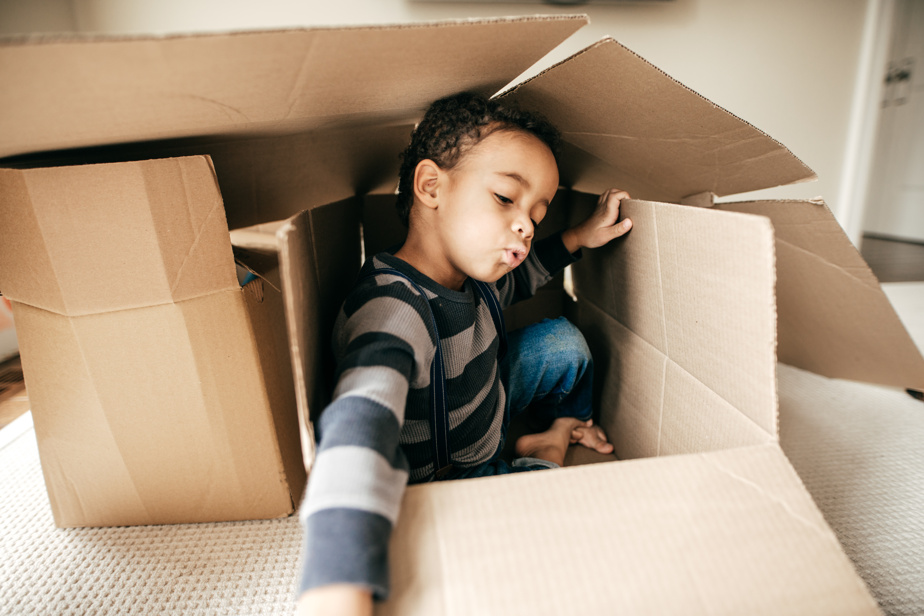Parenting a toddler comes with its own set of challenges. And it happens that we no longer know where to turn to find answers to these little daily worries. Once a month, La Presse explores an issue that affects the well-being of preschool children with the help of a specialist. Today: advice to ensure that your child has peace of mind during an upcoming move.
That’s it, the big day is coming. The family has found a new home and we will have to think about moving. But our little one started asking lots of questions and showing signs of worry. Are we right to take his questions seriously?
“Moving is one of life’s great stressors,” says Geneviève Marcotte, psychologist and author of numerous books, including Incredible Me controlling anxiety.
So if we add to this change of residence other factors – new daycare, new school, a context of separation… – it is possible that some children experience the situation more difficultly and begin to feel anxiety. “It depends on the temperament, but you can see stress reactions very early in some children,” says the psychologist.
In toddlers, however, this discomfort will not always be expressed verbally; among the most common signs, we could note changes in behavior, separation anxiety when leaving the parent at daycare in the morning, sleep problems or even stomach aches or headaches, illustrates Geneviève Marcotte .
“Basically, the child triggers his system of vigilance and reaction to danger as if he were facing a real danger, whereas he is facing a danger that has been constructed in the imagination; her body goes through a lot of transformations to deal with a danger that doesn’t exist,” she explains.
Sometimes, to do well, parents will try to minimize the importance of certain changes on the child, underlines Geneviève Marcotte. “We’re going to say, ‘Let’s see, you’re going to make new friends, it’s going to be more beautiful, we’re going to have a bigger house, your room is going to be bigger…'”
Others will rather avoid talking about the move. “On the contrary, we must prepare our child so that he can acclimatize to this idea and project himself into this new place of life,” insists the psychologist.
In his opinion, rather than insisting that everything is going to be “beautiful and wonderful” once the family moves, take the time to listen to the child and explain to him how each step will go. of the move.
“When children are very young, it’s very possible that they have no idea what a move is,” she adds. So we have to explain to them that there are movers who will arrive in a truck to take the boxes, and that in the new house, everything will not be unpacked on the first day, we will have to order food…”
Ideally, we bring the child to visit the new house, the neighborhood, the daycare or the school before the move to allow him to situate himself in these places, she specifies. We can even ask the child to make a box where he will store his toys, his stuffed animals, his clothes, then write his first name and the contents on the top.
And if the child is present during the move, or at least in part, we take the time to show him around the empty house to check that nothing has been forgotten, suggests Geneviève Marcotte.
“There are also children who like to give a small symbolic gift, such as a drawing, for the new people who are going to move into their house. »
The important thing, she stresses, is not to catch your child off guard. “We can use a calendar on which we will put a moving truck that we move so that the child can find his way in space-time. And above all, reassure him by telling him that no one is going to come and take our things without us knowing, when we are not there, that when I come back this evening, it will still be at my house. »















